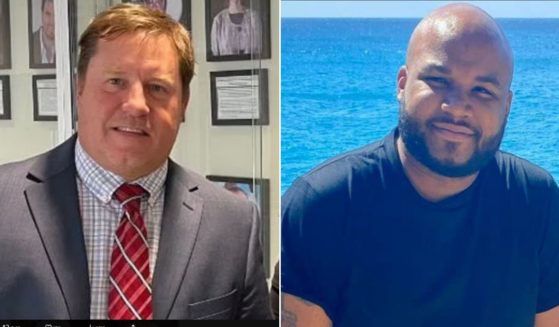Ex-FBI Agent Sounds Alarm on Kavanaugh Accuser's Polygraph Test
The truth about polygraphs is that they do not always identify fiction, said several experts responding to news accounts that the woman who has accused Supreme Court nominee Brett Kavanaugh of sexual misconduct passed a polygraph test.
Or as one ex-FBI agent put it, “Everyone knows polygraph exams can be beaten.”
Christina Blasey Ford has said that she passed a test, and used that as proof that she is telling the truth in her disputed account that Kavanaugh was sexually aggressive towards her during a party in the 1980s, when both were in high school.
Debra Katz, Ford’s lawyer, has said the results of the test were shared with The Washington Post when it published its interview in which Ford revealed her story.
But the fact that Ford took the test at all — in early August, according to The Post — raised the eyebrows of Sen. Lindsey Graham.
Graham noted that the test seemed out of character if Ford had truly never planned to do more than send her July letter to California Democratic Sen. Dianne Feinstein about the alleged encounter, which Kavanaugh denies.
“If Ms. Ford really did not want to come forward, never intended to come forward … why did she pay for a polygraph in August, and why did she hire a lawyer in August? And who paid for it?” the South Carolina Republican said, according to Fox News.
Experts also said the test means less than it seems.
A polygraph “can no more detect lies as it can detect truth,” said Mark Zaid, a Washington-based lawyer, according to the Washington Examiner. “So, to say that the results reflect (Ford) telling the truth is an inaccurate description, but it’s unfortunately how pop culture addresses it.”
Without knowing what is said, the test has no meaning, said one expert.
“It’s not the result of the polygraph; it is what polygraph subjects say during the polygraph interview that is most valuable,” said Thomas Mauriello, a former polygraph examiner at the Defense Department.
“The result of a polygraph simply is whether you did or did not respond to a particular question. A response is not a lie, because the polygraph is not a lie detector as most think,” Mauriello said. “A response is the activation of your sympathetic nervous system when answering a question asked during the examination.”
Former FBI agent James Gagliano’s criticisms were even stronger.
“In this case, if they want to put this out as irrefutable evidence that this woman is telling the truth because she passed a polygraph — that’s not the way polygraphs work,” Gagliano said.
“If that were the case, I would’ve taken every drug dealer, gangbanger, and pedophile I investigated, and I would’ve thrown them on the polygraph.”
Gagliano noted that the body’s reaction to a lie will not be triggered if the subject believes that he or she is telling the truth.
“Everyone knows polygraph exams can be beaten,” he said. “If someone is a psychopath or a sociopath, if you don’t have a conscience, if you don’t know right from wrong — you can beat it.”
Beyond the case of Kavanaugh’s accuser, Stephen Fienberg, a statistician who headed a 2002 review of the use of polygraphs, told NPR in a January 2015 interview that the devices can be useful, but are not perfect.
“These channels that the polygraph captures, whether it’s the sweating on fingertips or breathing, this information does tie in to the notion of lying or deception,” he said. “Unfortunately, it ties into other things as well.”
“My personal conclusion is it has no place in government’s dealings with its citizens,” Fienberg told NPR.
Truth and Accuracy
We are committed to truth and accuracy in all of our journalism. Read our editorial standards.












